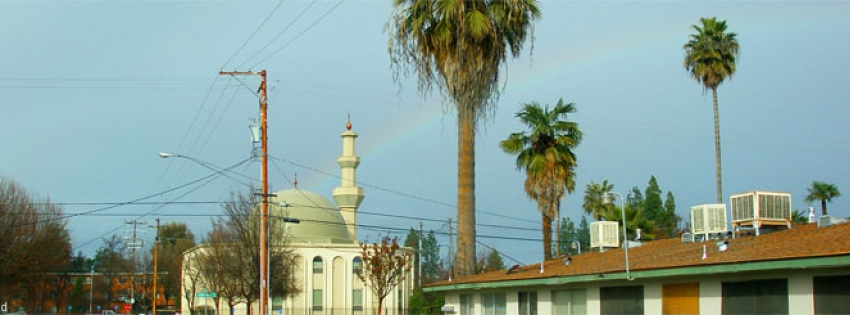
ACLU Foundation of Northern California, Asian Law Caucus, SF Bay Guardian v. FBI (Surveillance of Muslim Communities)
Lawsuit Seeks Information on FBI Activities in Northern CA Muslim Communities; Demand to comply with FOIA request stems from reports of community anxiety and fear over surveillance tactics.
Following reports of anxiety and fear over FBI surveillance tactics in Muslim communities, the ACLU Foundation of Northern California joined with the Asian Law Caucus and the San Francisco Bay Guardian in 2010 to file a Freedom of Information Act request in order to understand the scope of the FBI's activities, including the infiltration of Muslim communities and mosques through the use of informants.
The ACLU Foundation of Northern California and our partners are concerned that the FBI's tactics have a chilling effect on the right to worship freely, and that the use of race-based criteria for targeting purposes invites unconstitutional racial profiling by law enforcement.
Though the FBI agreed to expedited processing of the request, no documents were initially forthcoming. In August 2010, the ACLU Foundation of Northern California and our partners filed a lawsuit to speed the release of the records. The FBI has begun releasing the documents on a rolling basis - to be completed by December 2011.
We are making these documents available to the public through this website.
The need for transparency
"Clear information about the FBI's activities is necessary in order to understand the scope of their surveillance tactics to assess whether they have had a chilling effect on the right to worship freely or to exercise other forms of expression," said Julia Harumi Mass, staff attorney for the ACLU Foundation of Northern California.
The lawsuit stems from a pragmatic concern, too – a belief that the FBI will be more effective by partnering with Muslim leaders and organizations to collaborate in the investigation of real threats, rather than approaching them covertly and sowing suspicion and mistrust.
The civil rights organizations and The Bay Guardian requested the records in order to understand and to report on whether and how the FBI is:
-
Investigating Islamic centers and mosques (as well as Christian churches and Jewish synagogues);
-
"Assessing" religious leaders;
-
Infiltrating communities through the use of undercover agents and informants;
-
Training agents in Islam and Muslim culture; and
-
Using race, religion and national origin in deciding whom to investigate; and identifying particular schools for its Junior Agent Program.
The FOIA request was prompted in part by concerns reported extensively in the New York Times, Washington Post, Detroit Free Press, NBC Bay Area, New America Media, and other publications about the chilling effects of possible racial and religious profiling and the potential harm such tactics may have on national security.
Also of interest to the civil rights organizations are details on whether FBI agents are recruiting Muslim and Arab children at Bay Area schools to serve in the agency's Junior Agent Program.
Community members from Berkeley, Fresno, Visalia and San Jose, among other cities, have contacted the Asian Law Caucus and the ACLU Foundation of Northern California to share their personal experiences about visits by FBI agents and to voice broader community anxiety over attempts by the FBI to recruit informants and infiltrators.
"We need to understand the FBI's own policies and practices so that the communities we serve can make informed comments and seek policy changes as appropriate," explained Veena Dubal, staff attorney at the Asian Law Caucus.
On Feb. 11, 2011, the groups amended their complaint to include a challenge to the FBI's failure to release information about its use of racial and ethnic data to map communities in Northern California, as they had requested in a July 27, 2010 FOIA request.
Update
After four years of litigation and the release of many revealing documents about the FBI’s surveillance of Muslim communities, the parties filed cross-motions for summary judgment. One of the primary issues on summary judgment was whether the FBI can shield its records from public scrutiny by invoking a “law enforcement” exemption in the Freedom of Information Act even when the records describe conduct that is not directed at particular violations of federal law. Lawyers for the parties appeared on March 12, 2014 for a hearing on the motions for summary judgment before the Honorable Richard Seeborg.
On March 23, 2015, the court issued an order on the cross-motions, holding, “Because the FBI’s explanation of the link between its law enforcement activities and the particular documents withheld fails to meet the 'rational nexus' standard as it is applied in the Ninth Circuit, the FBI is altogether precluded from withholding information under Exemption 7.” (Emphasis added.) The court ordered the parties to meet and confer on next steps.
On Nov. 17, 2015, the court issued a further order granting summary judgment to Plaintiffs with respect to exemption 5 to certain documents. Judgment was entered on Dec. 8, 2015.
On February 1, 2018, the Ninth Circuit Court of Appeals vacated the district court’s ruling in favor of the Plaintiffs and remanded for further proceedings. The Ninth Circuit panel held that the government is permitted to withhold documents under Exemption 7 of the Freedom of Information Act without link the withheld documents to the enforcement of a particular statute. Proceedings in the trial court are ongoing.
